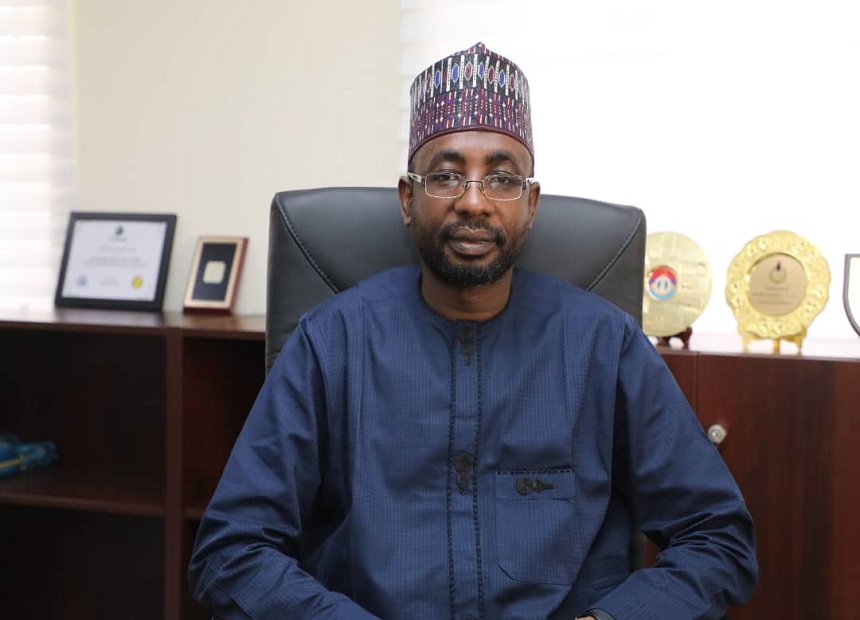The Director-General, National Information Technology Development Agency (NITDA), Kashifu Inuwa Abdullahi, strongly believes that the ever-growing youthful population of Kano and Jigawa can be a source of blessing to Nigeria if carefully harnessed.
Abdullahi stated this during a presentation at a Zoom Webinar organised by the Network for Development Foundation, with the theme: ‘Economic Recovery of Kano and Jigawa States Post-COVID19 Pandemic.’
He affirmed that if government leverages on the potential of the digital economy to exist, it can also recover from this pandemic, as well as create a sustainable environment to survive and thrive in the post-pandemic era.
Abdullahi further noted that COVID-19 pandemic and the lockdown have changed people’s needs and want as individuals, communities, and governments, suggesting that to survive and thrive in the post-pandemic era, there was the need to reassess and redefine value proposition.
The pandemic has caused an unprecedented upheaval across all industries, with commerce, transport, oil and gas, badly hit. These industries provide a lifeline to the economy in Kano and Jigawa.
According to the NITDA DG, “COVID-19 has triggered the deepest global recession since the great depression, as data available released by the World Bank has shown.
“The Bank predicted that the Global Economy would shrink by 5.2%as a result of the pandemic, which is about US$7.4t. Even though the ultimate impact is still uncertain, the pandemic has resulted in contractions across the world. Nigeria is not an exception.
“A survey carried out by the National Bureau of Statistics (NBS) shows that many citizens are concerned about their lives and livelihoods. 78% of the respondents were worried about their health while 92% saw the pandemic as a threat to their source of livelihood.
“Crises are recurring events in human history. Some are less severe; others change legislations, world politics, our perception of the status quo, and people’s lives. Humanity had overcome crises like the black plague and Spanish flue before.
“Therefore, I believe that we will overcome this pandemic as well, and we will come out of it stronger,” he added.
Abdullahi also highlighted some key achievements so far recorded by the Agency, which includes among others, soon to be commissioned NITDA Northwest Zonal Office situated in Kano.
The office is equipped with state of the art training facilities to train teeming youths from the North West region on digital skills. The training is for all, including facilities for people living with a disability, artisans, students and young entrepreneurs.
In Jigawa State, according to Abdullahi, the Agency has a strong partnership with the State Governor, Alhaji Muhammad Badaru Abubakar.
“We have executed several projects in Jigawa State, we are building ICT Community Centres in the three senatorial districts to engage and train our youth on emerging technologies and entrepreneurship.
“Also, we have engaged 135 farmers for smart farming aimed at revolutionizing the state agriculture value chain. The initiative, National Adopted Village for Smart Agriculture, NAVSA, is an ecosystem-driven digital platform for transforming the agriculture sector in Nigeria.
“It was designed to help farmers, agricultural stakeholders, and ecosystem players navigate their journey across the agriculture value chain from farm production to farm management, processing, harvesting, storage, marketing, and consumption.
“The project comes with tailored empowerment and sustainable business models that create diverse opportunities for the agriculture value chain that never existed in our country before. But it was tested and working well in a country like the Netherlands.
“The Netherlands, when compared with Kano and Jigawa combined, has similarities in population and landmass. Kano and Jigawa combined have a population of about 18.5M, and the Netherlands has about 17M people; inland mass, the two states are about 43,000km2 while the Netherlands is about 40,000km2.
“But, the Netherlands earning from agriculture export in 2019 was 94.5B Euros, which is equivalent to $106.36B, while Nigerian earning from oil and gas export in the same year was $5.18B. That is the power of smart precision and digital technology in agriculture,” the DG said.
As indicated in Mr President’s 2020 Democracy Day Speech, the Digital Economy is critical to Nigeria’s development agenda.
The journey to digital economy started On 23rd October 2019, when President Muhammadu Buhari, re-designated Ministry of Communications to Ministry of Communications and Digital Economy, to drive the positive impact of the digital economy in every sector of the economy.

